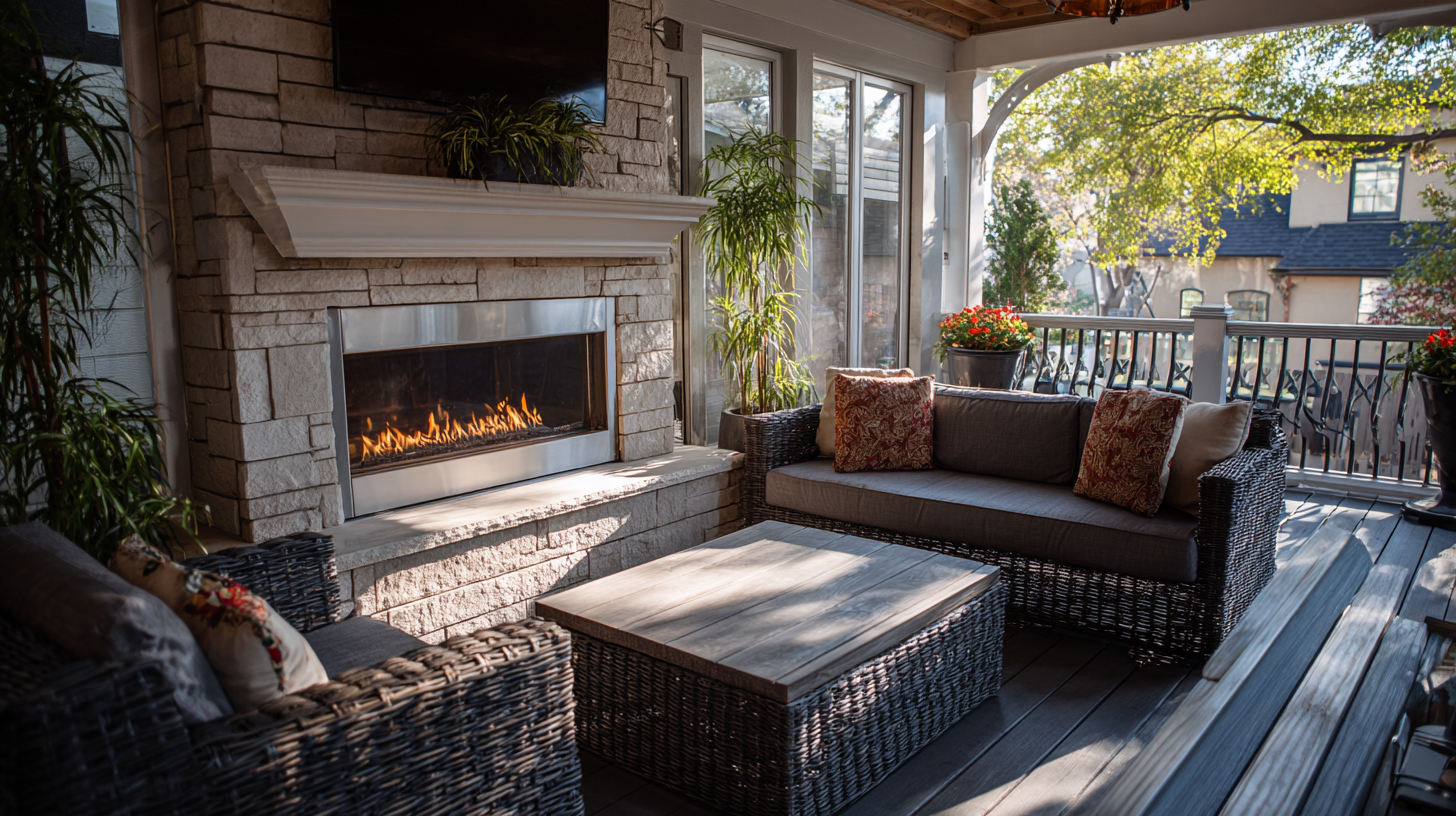When it comes to enhancing the beauty and functionality of your home, choosing the right glass fixer is an essential step that should not be overlooked. According to a recent report by the Window and Door Manufacturers Association, nearly 70% of homeowners consider window replacement and repair as a top home improvement priority. Investing in high-quality glass replacement and repair can significantly improve energy efficiency, with ENERGY STAR estimates suggesting potential savings of 12% to 25% on energy bills with proper window performance. With an array of glass fixers available in the market, ranging from simple repairs to advanced energy-efficient solutions, understanding your specific needs is crucial. This guide aims to equip you with the knowledge required to make an informed decision, ensuring that you select the best glass fixer that not only enhances your windows but also aligns with your overall home improvement goals.

 When it comes to selecting the right glass fixer for your windows,
it's essential to understand the different types available and their specific applications.
There are primarily three categories: adhesive, sealant,
and repair kits.
Adhesive fixers are perfect for minor cracks and chips, providing a temporary but effective solution.
They work by bonding the glass together while preventing the damage from spreading.
In contrast, sealants are ideal for weatherproofing and sealing gaps around window frames,
keeping moisture and air out while enhancing energy efficiency.
When it comes to selecting the right glass fixer for your windows,
it's essential to understand the different types available and their specific applications.
There are primarily three categories: adhesive, sealant,
and repair kits.
Adhesive fixers are perfect for minor cracks and chips, providing a temporary but effective solution.
They work by bonding the glass together while preventing the damage from spreading.
In contrast, sealants are ideal for weatherproofing and sealing gaps around window frames,
keeping moisture and air out while enhancing energy efficiency.
For more substantial damages, repair kits that include resin or epoxy are often the best choice.
These kits frequently come with detailed instructions, making them suitable even for those with limited DIY experience.
They effectively fill in larger cracks, restoring the integrity of the glass.
Knowing the type of damage and the environment your windows are exposed to will help you make an informed decision
about which glass fixer aligns with your specific needs.
When it comes to enhancing your home's insulation, the choice of glass fixer plays a crucial role. According to the U.S. Department of Energy, up to 30% of a home's heating and cooling energy can be lost through windows. By selecting the right glass materials and fixers, homeowners can significantly improve their energy efficiency. Low-emissivity (Low-E) glass, for instance, can reduce UV rays and minimize the transfer of heat, thereby maintaining a stable indoor temperature and reducing reliance on HVAC systems.
Tips: When evaluating glass fixers, consider options that provide better thermal performance ratings. Look for products with a U-factor (measure of heat transfer) of 0.20 or lower, as these will offer superior insulation. Additionally, ensure that the glass is double or triple-paned, as this increases the air or gas layer between panes, which enhances insulation.
Moreover, incorporating argon or krypton gas between panes can further improve energy efficiency. Studies show that homes with such gas-filled windows experience up to 20% more efficiency in heat retention compared to regular air-filled counterparts. Choosing a reputable glass fixer not only minimizes energy costs but also contributes to a more sustainable living environment.
This chart compares the energy efficiency ratings of various types of glass commonly used in windows. The ratings are based on the U-factor, which measures the rate of heat transfer. Lower U-factors indicate better insulation properties, contributing to improved energy efficiency in your home.
When considering whether to repair or replace your window glass, a thorough cost analysis is essential. According to the Glass Association of North America (GANA), typical repair costs for window glass can range between $100 to $300, depending on the extent of damage and type of glass. In contrast, the cost of replacement often starts at around $300 and can exceed $1,000, especially for custom or specialty windows. This stark difference highlights the importance of assessing the damage and weighing the benefits of repair against the often higher costs of replacement.

Additionally, a report by the National Association of Home Builders (NAHB) indicates that homeowners may save more in the long term by opting for repairs, as well-maintained windows can lead to improved energy efficiency. By addressing minor issues promptly, homeowners can avoid the more significant expenses associated with full replacements, which can also disrupt the home environment. Therefore, before making any decisions, it is advisable to get multiple quotes from qualified glass fixers who can provide insights tailored to your specific needs and budget.
When selecting glass fixers for your home, understanding safety and regulations is essential. Different regions have specific building codes that dictate the types of glass products that can be used, particularly for exterior windows and doors. It's crucial to familiarize yourself with these local laws to ensure compliance and avoid potential fines or safety hazards. For instance, tempered glass is often required in areas prone to high impacts, such as near swimming pools or doors leading to garages.
In addition to regulations, consider the safety features of the glass fixers you choose. Look for products that comply with safety standards set by recognized organizations, ensuring they meet durability and performance criteria. It's also wise to inquire about the installation process, as improper fitting can compromise safety. By prioritizing both compliance with regulations and the safety features of the glass fixers, homeowners can achieve peace of mind while enhancing the aesthetics and functionality of their living spaces.
When it comes to choosing the right glass fixer for your needs, understanding the differences between professional and DIY solutions is crucial. Professional repairs, such as monitor screen fixes, usually cost between $100 and $300, depending on the extent of the damage. This approach guarantees quality workmanship and often provides a warranty, ensuring peace of mind. However, if you're comfortable with tools and prefer a cost-effective solution, DIY options can significantly reduce expenses, as parts for repairs can range from $50 to $100.
For specific applications like windshield repairs, investing in a good windshield repair kit can be advantageous. These kits are designed to tackle minor chips effectively, preventing them from spreading and saving you from visiting costly repair shops. While they may not be a catch-all solution, many kits use similar technology to what professionals employ but at a fraction of the cost. Having a reliable repair kit on hand can be useful for car owners who want to maintain their vehicles without incurring high repair bills. As with any repair decision, weighing the pros and cons of both methods will help you make an informed choice tailored to your needs.
| Solution Type | Pros | Cons | Cost Range | Time Required |
|---|---|---|---|---|
| Professional Glass Fixer | Expertise, Quality Assurance, Warranty | Higher Cost, Scheduling Issues | $100 - $500 | 1-3 hours |
| DIY Glass Fixer | Cost-Effective, Flexible Timing | Lack of Experience, Risk of Error | $20 - $200 | 2-6 hours |